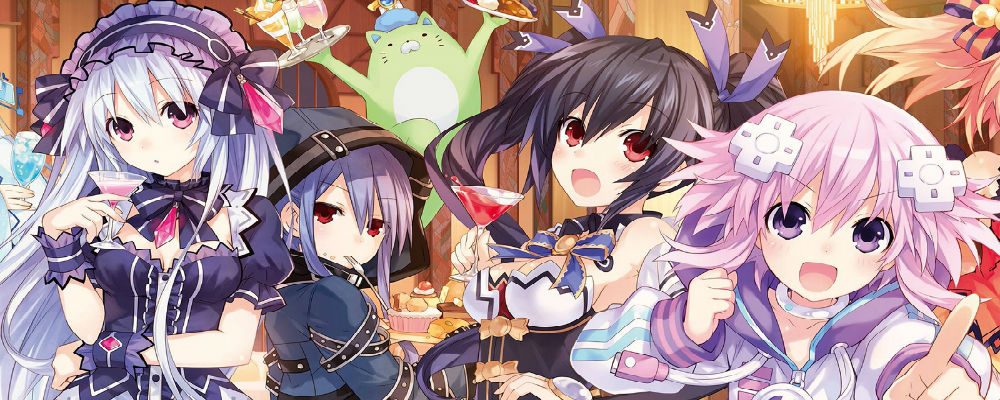‘Perfection’ isn’t the word
The Hyperdimension Neptunia series is a polarizing one. Some find Compile Heart’s thinly-veiled parodies of the game industry engaging and painfully adorable, and flock to it for an abundance of fanservice. Others run far, far away at the mere mention of the developer’s swath of content, especially given its less than lukewarm reception among critics and gaming publications.
Needless to say, it doesn’t need much help languishing in obscurity without having to resort to a spin-off that finds you grooming the all-female cast to be the best pop stars they can possibly be. That’s why Hyperdimension Neptunia: Producing Perfection is such a strange prospect. Compile Heart’s attempt at a Project Diva-styled rhythm game is cutesy enough in its execution, but it ends up a little tone deaf.

Hyperdimension Neptunia: Producing Perfection (PS Vita)
Developer: Compile Heart
Publisher: NIS America
Release: June 3, 2014
MSRP: $29.99
For the uninitiated, Hyperdimension Neptunia revolves around the female personifications of the major console manufacturers. You’ve got Noire, Neptune, Blanc, or Vert, each representing various companies such as Nintendo and PlayStation. That’s a common theme within the Hyperdimension games, although Producing Perfection abandons the entire “lampooning the game industry” mission and opts for an idol management game that pulls you in as an active participant in the CPUs’ fates rather than a passive viewer who was simply privy to the RPG stylings of the Hyperdimension Neptunia games past.
Producing Perfection charges you with training the CPUs of Gamindustri (that’s where they live) to become the latest pop sensation after they begin losing their powers to pop idol group MOB48. Rather than seeking out an alternate path to success, the girls arrive at the conclusion that the best way to beat out their rival is to excel in the same field. The girls decide to summon you (the player) as their producer. From there, it’s your job to determine whether they sink or swim as aspiring idols.
Producer Mode finds you naming your custom protagonist and choosing a singular CPU to raise and mold as you see fit. From there, you complete bits and pieces of training segments, as the game is set up like that of a day-to-day sim with visual novel elements peppered in. Your end goal is to take on most of the shares in the region you’re operating in as well as send one of your CPU’s recorded songs to number one on the charts. You’ve got 180 in-game days to complete this objective, so time management and making the right decisions is absolutely crucial if you want to see any of the endings that are considered “good,” or any of the events leading up to them.
Day-to-day tasks include giving the girls singing lessons, rhythm training, and more, but they need to be able to relax too, so the goal is to strike a fair balance between learning and polishing up stats while waiting for cooldown periods to pass. Once you’ve become a bit more seasoned, you even have the option to put on concerts, during which you’ll help your fledgling pop star perform.

These segments are a bit dull, unfortunately, mainly because the music tracks themselves aren’t truly memorable after you’ve completed the songs, and because you don’t truly interact with your idol as much as you’d think you would. There are only six tunes to speak of as well, so it’s a good thing the concerts weren’t made a focal point of gameplay — they can and do get old extremely fast. But you’re not really there for the music, strangely enough. Enhancing stage presence and playing around to see what works best for the girls is fun too, but rarely engaging. In fact, you do little else other than alter the camera angles and provide special effects for the girls during their performances, and admittedly, this can be done while barely even looking at the screen. There’s no real lasting appeal to speak of that you might see with, say, Project Diva F or other similar endeavors.
A combination of the tasks you direct your girls to complete and your attentiveness lead you to the ending you’ll eventually receive, although it’s prudent to keep in mind that allowing any of the girls’ stress to reach its max level or simply running out of time to “complete” the game will result in the worst ending possible. If you’re familiar with visual novels and dating sims of this ilk, this should come as no surprise to you. However, if you’re a newcomer to the genre and have little or no understanding of the basic framework of “management” sims or visual novels, the game won’t be holding your hand to see you through. You’ll need to figure things out for yourself, which may well be a turnoff for some players.

The problem is that the game never really ramps up enough in the idol management or concert areas to offer a complete experience for both fans of the Hyperdimension Neptunia lore or those who’ve never ventured forth into Compile Heart’s colorful world of CPUs and tongue-in-cheek video game references. It seems content to languish between two worlds, and as it’s never particularly fantastic in either, ends up feeling quite hollow.
And it’s not for the production values, at least. The game is polished enough and boasts excellent localization, with genuinely likeable dialogue. English and Japanese voice options are certainly a boon, and it’s entertaining to see the Hyperdimension Neptunia girls in new roles, but this isn’t exactly the vein most players will want to see them in. Plus, unless you want to play the same scenarios over and over, you’d get more enjoyment out of one of the meatier core games.
Unfortunately, this is one instance where Compile Heart simply didn’t produce perfection — but if you just want to hang out with the girls when there’s not some sort of crisis going on, it might be worth a look.


